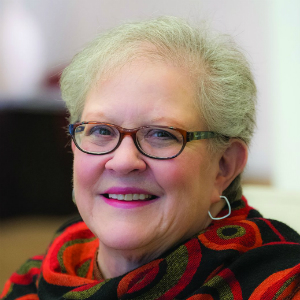So much of my work has been “crisis meeting management,” that is, organizations discovered that a signed contract contained ambiguities (see the Aug. 2016 edition of Friday With Joan and this contracts webinar I hosted for more), and realized they could be or were in trouble. They contracted me in hopes of my being able to clear up contract ambiguities and to help them get through their meetings.
I’ve found few groups or individual planners understand the need for insurance for their meetings and the types they must have, should have—or it would be smart to have!
I am grateful to Lou Novick, my “go-to” person when it comes to meeting insurance questions, for taking time to respond.
Q1. Who is Louis Novick?
Louis (“Lou”) Novick is president of the Novick Group Inc., a commercial property and casualty broker located in Rockville, Md., a suburb of Washington, D.C. The firm, which is licensed to operate in all 50 states, celebrated its 25th anniversary in January 2012. Prior to starting the firm, Lou worked for Marsh & McLennan in the Washington, D.C. office of Smith-Sternau (now Mercer Health & Benefits Insurance Services LLC).
Lou writes extensively and speaks regularly on topics related to insurance and risk management to a diverse range of nonprofit organizations and industry groups. For more than 30 years, he has been actively involved in the exempt/nonprofit insurance market with special emphasis in the D&O, publishing, fiduciary and miscellaneous errors and omissions lines. Lou has served on the boards of a number of nonprofit organizations, including the Greater Washington Society of Association Executives, the ASAE Center for Association Leadership and the Finance and Administration Roundtable, serving as its chair in 2007-2008.
His contact information is 1 Church Street, Rockville, MD 20850; Tel.: 301.795.6600; fax: 301.795.6610; e-mail: lou@novickgroup.com; his websites are www.novickgroup.com and www.showguard.com.
Q2: Many groups think that the property and general liability insurance policies they have for their corporations or associations also cover their off-site meetings. What are they missing in thinking that?
A2: In general, an organization’s property and Commercial General Liability (CGL) policies afford protection from loss at off-site locations. Most standard commercial properties provide some amount of coverage for property damage or loss while in transit to or temporarily located at a site other than an insured location (e.g., the headquarters address). But the amount of coverage is typically limited so the insured’s need to be certain that both the type and amount of property at risk are covered.
Within the U.S., Canada and U.S. territories, a CGL policy will follow the insured. If “it” is covered at the HQ location, “it” will be covered at the venue as well (it being the claim resulting from bodily injury or property damage that arises from the insured’s operations). The biggest challenge for most insured organizations comes from a subject you have written extensively about: liability assumed under contract. In general, if the claim does not result from the insured’s operations, there is no coverage for the venue to whom the organization has agreed to indemnify and to include as an additional insured on their CGL policy.
Q3a. In terms that we all can understand, please explain the following types of insurance or similar protection for meetings, and why groups need to consider having them:
A3a: Event Cancellation Insurance: ECI protects against the loss of revenue and resulting extra expenses arising from the necessary cancellation, curtailment or postponement of a meeting due to a covered peril (e.g., weather, disease, a fire at the venue, terrorism, etc.). Many organizations also insure some or all of their non-budget items, such as room block and F&B commitments.
Dram shop/liquor liability: This refers to the exposure under state or local law to liability imposed on organizations whose primary business is the sale or service of alcohol for loss arising from the consumption and intoxication of a patron or guest. This generally does not apply to associations where the service of alcohol is incidental to the business operation. The inclusion of Host Liquor Liability as part of the CGL is available for this lesser exposure.
Music licensing: Unlike private use of music, which may be secured by download or the purchase of a CD, commercial use of such copyright protected intellectual property requires a license. In the U.S. most owners of copyright-protected music rely on one of the major performing rights organizations such as ASCAP or BMI to facilitate the licensed use of their members’ works. The unlicensed use of copyright protected property could potentially result in litigation seeking damages because of the copyright infringement. In most cases once the unauthorized use is discovered the payment of applicable fees and penalties is sufficient to resolve the matter.
Q3b: How do indemnification clauses in contracts protect the parties? If those are included, is insurance still needed?
A3b: The indemnification clause in a contract is often referred to as a risk allocation provision. It expresses the understanding between the contract parties that one party or the other may have a duty to indemnify (pay on behalf) the other for loss. The assignment of risk attaches to the indemnitor who is said to assume the risk of loss that may be incurred by the indemnitee. In general, most contracts favor the interests of the author or the party with the greater leverage. In the case of license agreements this is usually the hotel or convention center.
While an indemnification clause is an example of a risk transfer technique, shifting responsibility from indemnitee to indemnitor, an insurance policy serves as both a risk transfer (from insured to insurer) and a risk funding technique. In most instances the organization’s CGL insurance is the presumptive risk funding mechanism that supports the contractual assumption of risk. Great care by the association must be taken to weigh carefully the burden that such an assumption of risk imposes.
It is not unusual that such agreements allocate the responsibility for risk from events unrelated to the association’s operations or for claims that were beyond their control. Since this loss is not transferable to the organization’s CGL policy, this is known as retained risk (i.e., risk retained on the insured’s balance sheet).
Q4a: Some hotels state, in their proposals (that they refer to as contracts) that the group must add the hotel to the group’s policies as an additional insured. Why or why not is this a good idea for the group?
A4a: Among other things, the contractual obligation to indemnify another party includes the cost of reasonable attorney’s fees. Assuming that the claim that triggers the indemnification obligation implicates the insured group to begin with (i.e., the claim arises from their operations and a demand against them is made), the CGL policy may be expected to provide for payment of defense costs as agreed to in the contract.
However, in some forms of the CGL policy still in use, the payment of these defense costs are categorized as damages that reduce the policy limit of liability. Alternatively, if the contract requires that the group name the hotel as an additional insured, defense costs are payable under a section known as Supplementary Payments and do not reduce the limit of liability.
Q4b. How can planners explain to hotels that they are not in the business of insuring others?
A4b: While the indemnification clause transferring risk to the group may be (often is) unbalanced and unfavorable from the group’s perspective, the premise that the venue requires the event sponsor to assume responsibility for the actions of those in attendance (attendees, exhibitors, contractors, etc.) is a reasonable expectation. Organization sponsors are advised to incorporate insurance and indemnification provisions in the agreements with exhibitors and contractors that mirror those in the hotel agreement.
Q5. What do you most want meeting professionals—those who plan meetings and those who service them (hotels, AV companies, entertainers, speakers, decorators, etc.)—to understand about insurance?
A5: Here are some things that I think planners need to understand:
Contract Review
A working knowledge of the insurance, indemnification and hold harmless provisions in the contract your group or your client will sign is essential. Bring in resources as necessary to assist.
Exhibitors
Connect the dots: Risk allocation provisions (i.e. insurance, indemnification and hold harmless) in exhibit contracts should mirror (at a minimum) those found in the agreements signed by the association with the convention center. Certificates of insurance should be required and reviewed for correctness.
Contractors
Whether drayage, transportation or catering, the association should contractually transfer to every vendor or contractor responsibility for loss arising out of services they provide. Appropriate insurance should be required in all instances.
Legal Review
Not merely legal review, but review by counsel with knowledge and experience in meeting planning.
Insurance Review
If the association wants to rely on its insurance for protection, more attention needs to be given than just asking the broker for a certificate of insurance.
In a P.S. to me, Lou added to my question of which carriers to rely on:
“If it’s event cancellation, our ‘current’ top three market picks are: (i) All Media Global, (ii) HCC and (iii) ExpoPlu$. FYI, rates are at historic lows. For special event liability, our go-to markets are HCC and K&K.”







